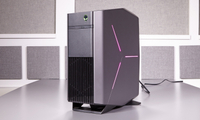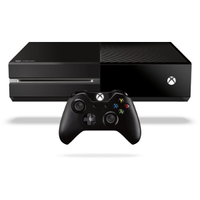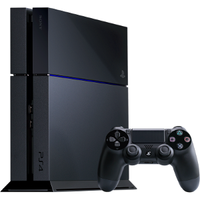PC vs. Console Gaming: Which Should You Choose?
If you're in the market for a PC or game console, consider the following factors and weigh your options accordingly.
PC and console gamers have been at each other's throats since the '80s, and the battle doesn't look like it'll end anytime soon. In one corner: fans of an expensive, multipurpose machine that allows unprecedented customization — if you've got time and expertise. In the other corner: advocates of a cheaper box with high-end exclusive games that does just one thing, and may not do it for all that many years. Let us choose wisely.
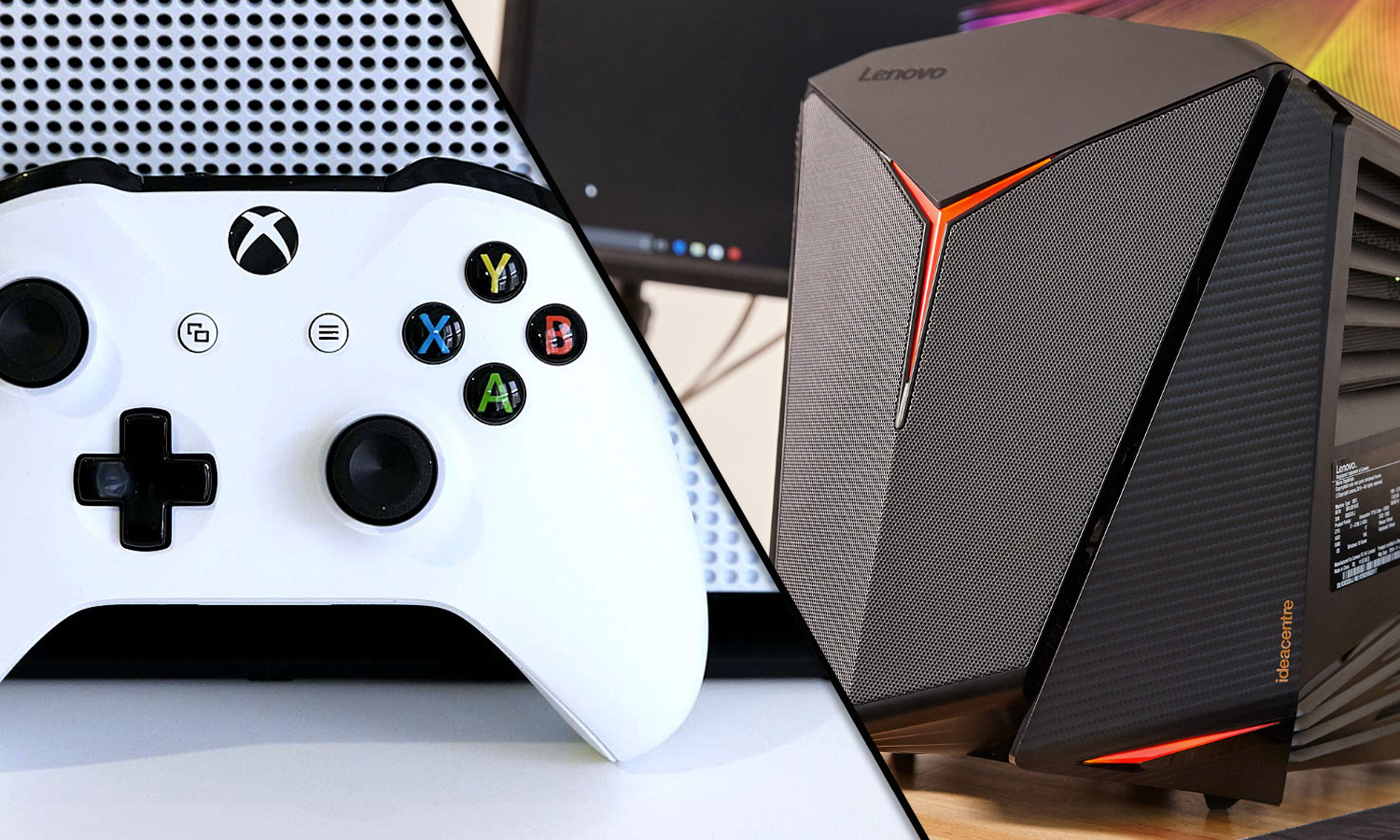
Despite the zealots on either side (and really, they get scary), most reasonable gamers will acknowledge that each option offers pros and cons. Your preference will depend on how much money you have to spend, what kind of games you like to play and how much tolerance you have for DIY tech support. If you're in the market for a new gaming system, consider the following factors and weigh your options accordingly.
Bear in mind that this guide primarily concerns Xbox One, PlayStation 4 and PC gaming. The Nintendo Switch is also a worthwhile system in its own way, but its selection of games and general raison d’être don't lend themselves to an apples-to-apples comparison.
Price
PC gaming is expensive. You can get a cheap, pre-built system for around $450, but it will come with specs that might have looked impressive about five years ago. You can also go for broke and spend multiple thousands of dollars on the latest video card, the fanciest processor, gobs of RAM and a customized case. Either way, getting a quality gaming PC for the price of a console (between $300 and $500) ranges from extremely difficult to impossible.
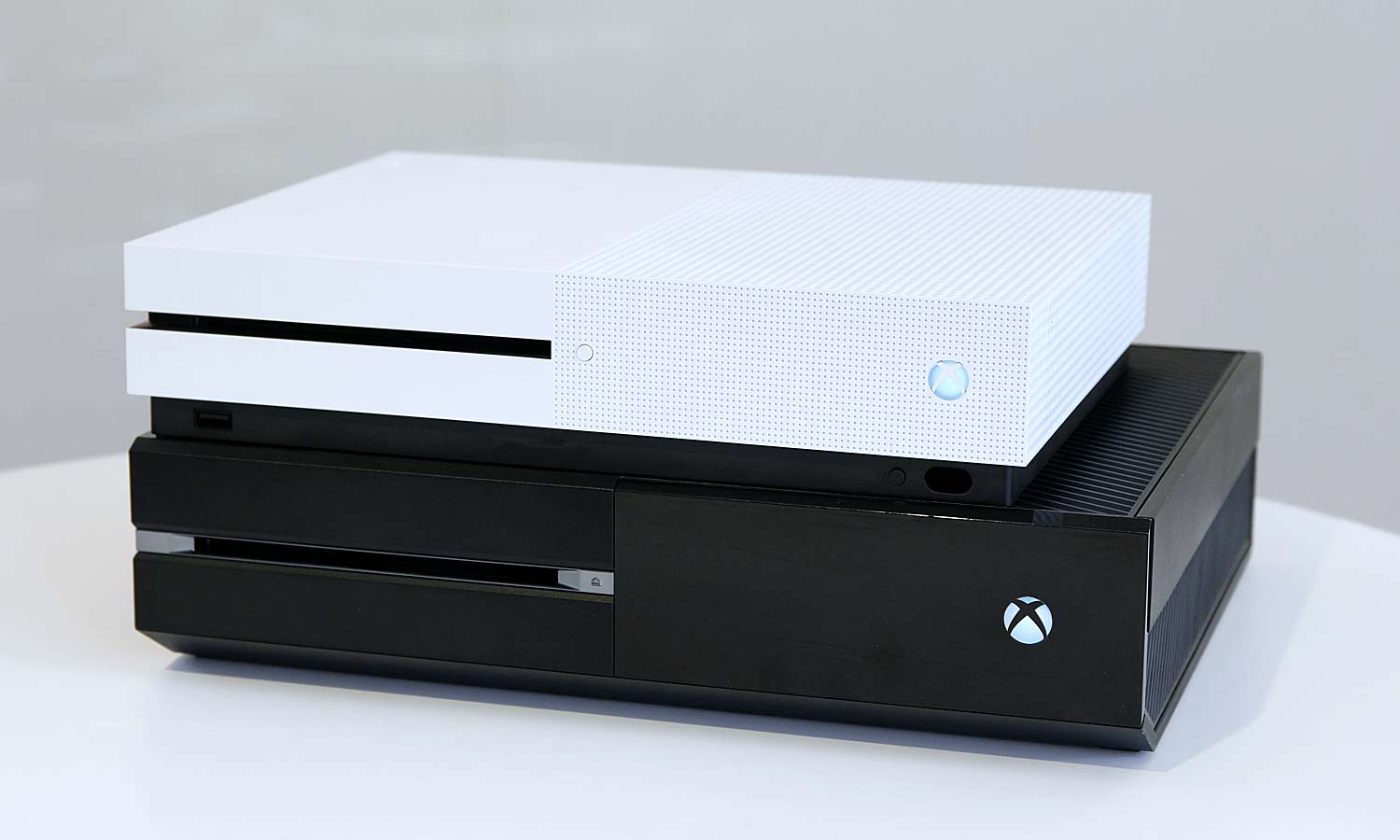
Estimates on how much it costs to build a PC vary, especially because parts are constantly fluctuating in price and because you can buy them from a variety of different sources. Based on some research from Reddit and Tom's Hardware, the current sweet spot for a "good-but-not-great" gaming PC ranges from $600 to $900. At $1,200 and above, you will get something spectacular.
I won't say it's a bad investment (it's not), but the low end of that spectrum would easily cover a PS4 or Xbox One, an extra controller, and a pretty hefty library of games.
That's all assuming you want to build your PC yourself, of course; pre-built systems cost more. Partially, that's because you don't have to construct it yourself; mostly, it's because you have access to tech support if something goes wrong.
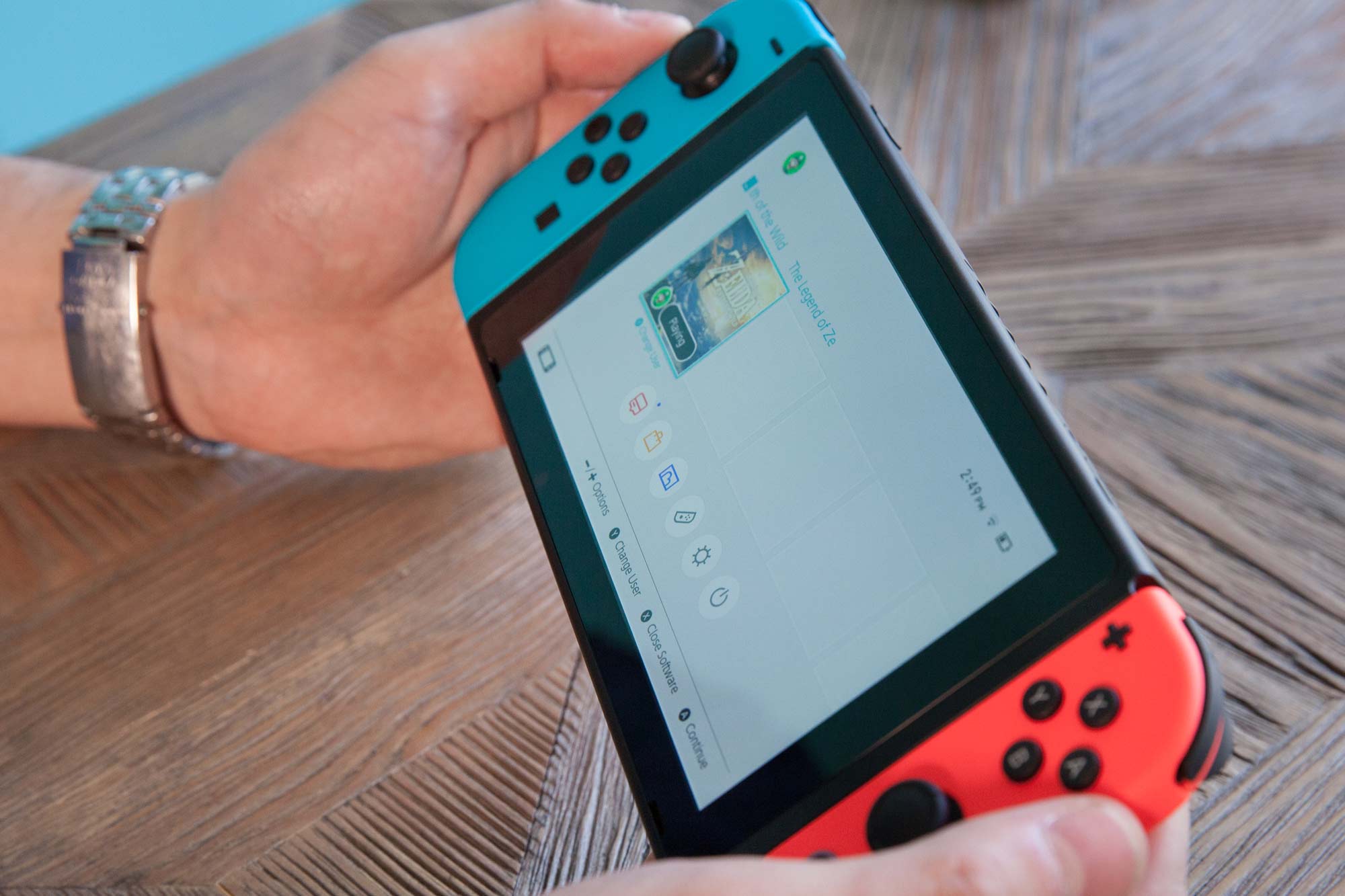
Consoles, on the other hand, get cheaper over time but tend to remain within about $100 of their original prices for as long as they're the current generation on the market. A standard PS4 or Xbox One will set you back $300; their 4K variants are a little more expensive ($400 for a PS4 Pro; $500 for an Xbox One X when it launches later this year). They occasionally fall to $250 during sales.
All of this may make it sound like PC gaming is a huge money sink and console gaming is a cost cutter's dream come true, but remember: we've compared only hardware so far. When it comes to games, PCs have an enormous advantage over their console brethren. Steam, the primary distributor of digital games, has frequent sales and an enormous selection of indie games. GOG, which specializes in DRM-free older games, doesn't charge much for its classic titles. Origin, EA's digital platform, often gives away newish games for free.
Console games tend to stay at high prices for a much longer time and go on sale less frequently. It's hard to say exactly how many games you'd need to buy to make up the cost differential of a PC, but if you have the system for a sufficiently long time, it could pay for itself in software costs.
Game Selection
With big-budget titles, midtier developers, indie fare and classic games, PCs have an unparalleled selection. Whether you're buying the latest Assassin's Creed game from Steam or running DOSBox to relive a childhood classic, it's relatively easy to get a huge variety of titles on your PC, if only because the library can go back almost 30 years.
(That's not to say that every single title works seamlessly on newer PCs, though. There was a rough patch in the late '90s and early 2000s, and nothing from that era seems to work on modern systems. So replaying, for example, Star Trek: Bridge Commander could be a bit of a challenge. It's not impossible, but you'll have to work for your fun. More on that later.)
PS4 and Xbox One libraries don't go back quite as far. You can play some PS3 games through PlayStation Now and some Xbox 360 games thanks to backwards compatibility, but generally, you're limited to whatever's come out within the last few years. A lot of midtier studios don't bother releasing console games, as the cost to port these titles is prohibitive; even more indie studios stick with PC and mobile development, since their games can reach the broadest possible audience that way.
On the other hand, console manufacturers have one huge boon: exclusive franchises. You need an Xbox One to play Halo; you need a PS4 to play God of War. Some of this generation's best titles are console exclusives, including Sunset Overdrive, Bloodborne, Halo 5 and Horizon Zero Dawn.
Granted, Microsoft has made great strides toward PC equanimity in recent years, so Xbox exclusivity may not be a problem for that much longer. But if you want to play Ratchet & Clank or Uncharted, PS4 is still the only way to go.
Graphics
The PS4 Pro and the upcoming Xbox One X can display 4K resolutions with HDR color technology. That's impressive — but PC gamers have had similar options for years, with considerably more granular control over things like textures, ambient lighting and even how much a character's hair waves in the breeze.
There's no two ways about it: A decently powerful PC can display better graphics than its console brethren. A very powerful PC can blow a console away.
Tech Literacy
The biggest deciding factor in choosing between a PC and a console is how much legwork you're willing to do. While consoles are more computer-like than ever, they're still generally simple to operate.
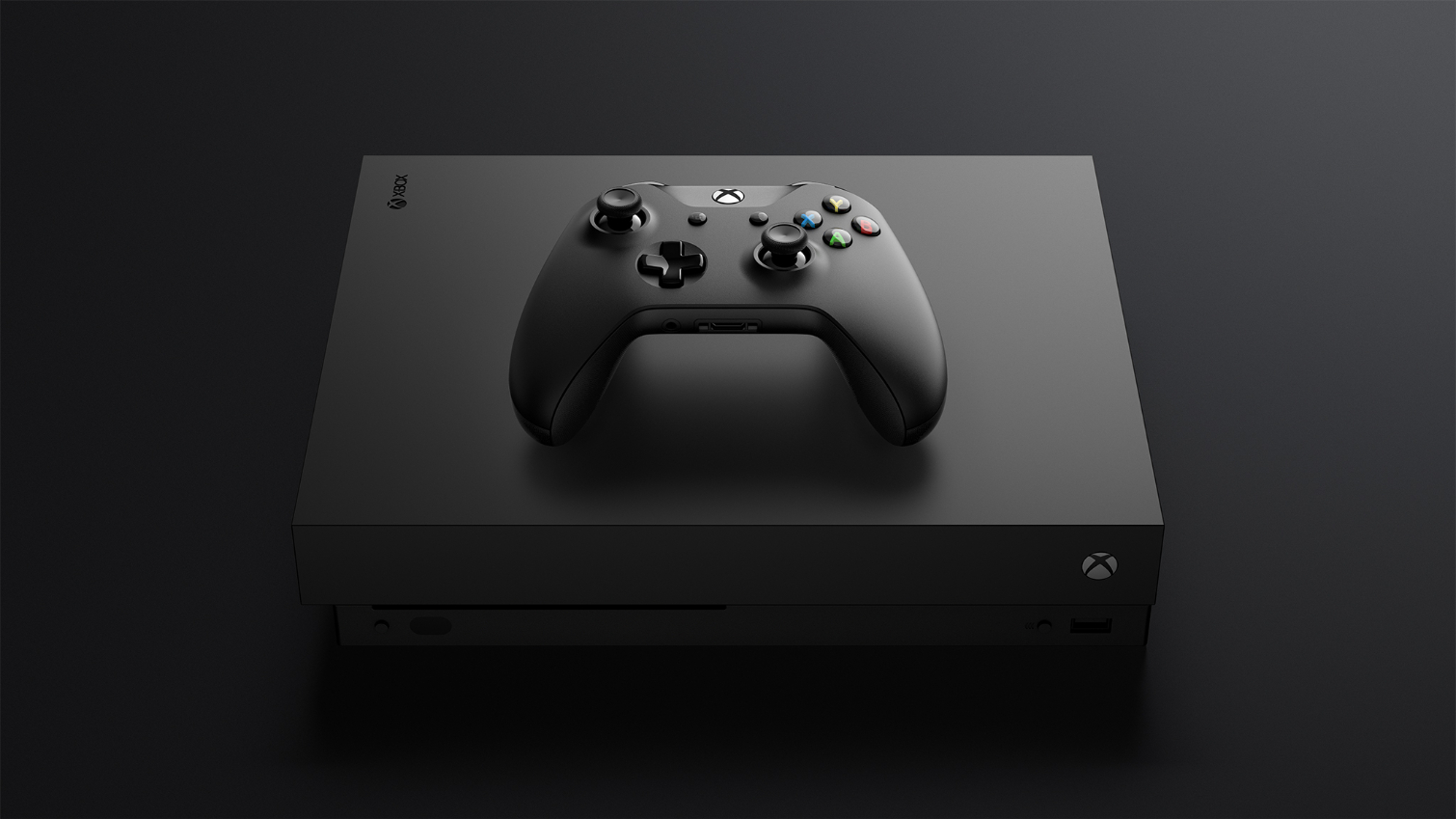
You slide a disc into the tray (or download a title from the one-and-only digital storefront), and then play your game. You can also download a few entertainment apps and browse the internet. If you're really ambitious, you can route your TV channels through the console. That's about it.
Furthermore, if something goes wrong with a console, it's almost always very easy to fix. Reinstalling software and clearing the cache will solve a lot of problems; factory-resetting the device will solve even more. If all else fails, Sony and Microsoft can always repair your device — although, if it's out of warranty, they'll probably charge you for the service.
On a PC, Murphy's law is in full effect: Anything that can go wrong, will go wrong, and at the worst possible time. With dozens of different parts, hundreds of drivers and myriad interacting software, solving problems often involves a great deal of trial and error — assuming you can even diagnose the issues in the first place.
If, suddenly, a game refuses to start up, you can contact the game's manufacturer, which might direct you to Microsoft, which might direct you to its Xbox division, which might direct you right back to the game's manufacturer. Posting on Reddit or Tom's Hardware often produces better results, but it's hard for responders to diagnose a problem remotely — and, typically, it's going to take at least a few hours before you can fix your problem. You might have to root around in your registry, your file settings or even your BIOS. More often than not, things go wrong for seemingly no reason whatsoever, and fixing them is an arduous process.
Hardcore PC zealots will claim that situations like this crop up only if you act hastily or irresponsibly with your machine. This has not been true, in my experience. Own a PC long enough, and eventually, it will betray you. This is not the end of the world, but it does happen.
The good news is that most PC problems are fixable. Even if a piece of hardware is busted, you can crack open your system and replace it yourself without too much trouble. Still, even if you buy a pre-built machine, you'll have to do your own tech support more often than not. You'll need to be half detective, half IT technician. On the bright side, there is a certain satisfaction in knowing that you can build and maintain a complex machine — whether that satisfaction is worth sacrificing a few hours of your gaming time is up to you.
Multiplayer
Both consoles and PCs allow you to play multiplayer games, but the functionality isn't exactly the same on the two types of system. For example, if couch co-op is your thing, you can pretty much count out a gaming PC. Yes, it's theoretically possible to connect multiple controllers and find a game that lets two (or more) people play together, but it's more trouble than it's worth on both counts. While local co-ops may not be as common as they once were, it's nice to know that you can still play Borderlands, for example, with your best buds on the PS4 or Xbox One.
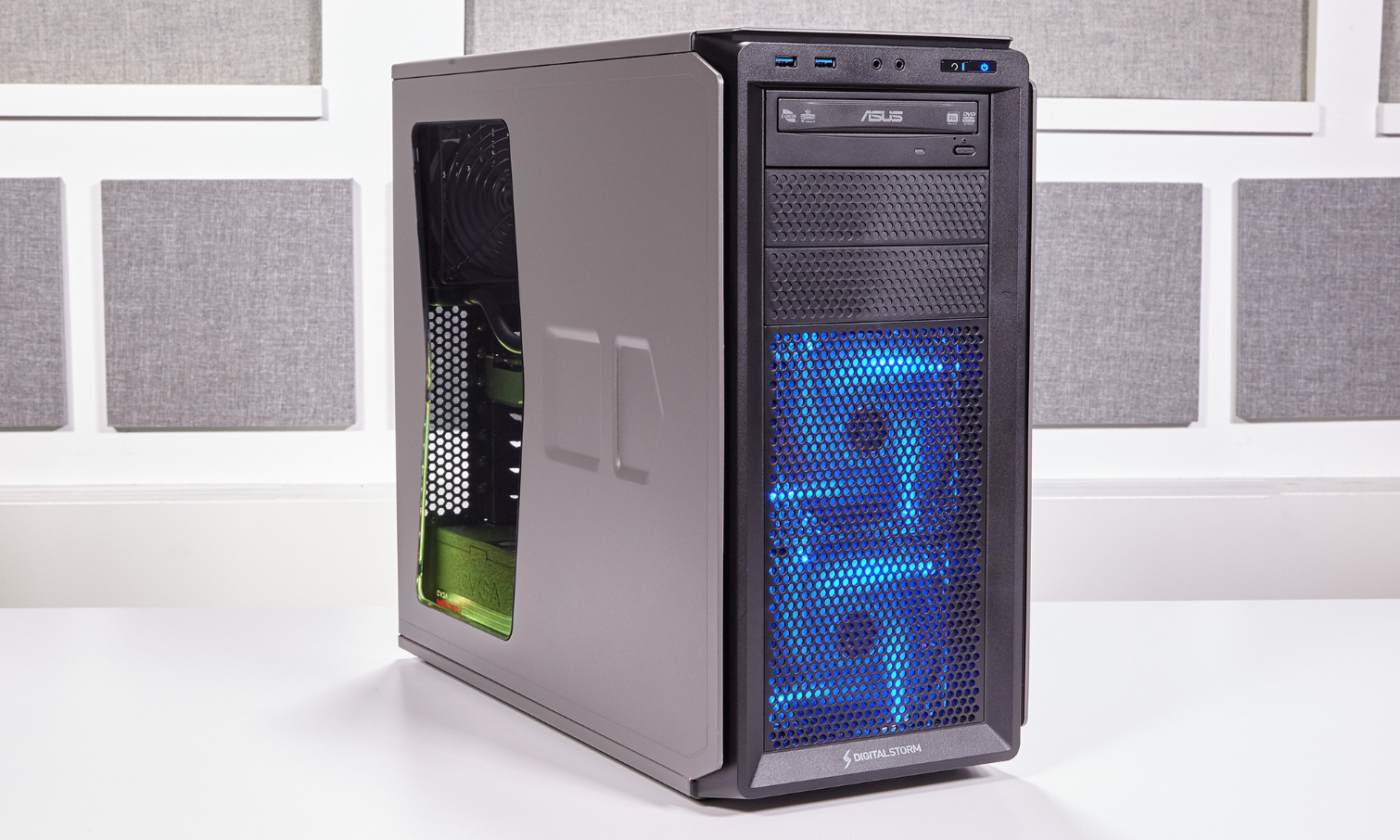
On the other hand, PCs have a distinct advantage in online multiplayer. In order to play PS4 or Xbox One games online, players have to subscribe to Sony's or Microsoft’s premium online services: PlayStation Plus or Xbox Live Gold, respectively. These tend to cost about $60 per year — or more, if you pay monthly.
While Plus and Gold include some extra perks, like cloud storage and a rotating selection of games, it's still a cost that's totally foreign to PC gamers. Unless you're dealing with a game that charges subscription fees, like Final Fantasy XIV, playing online with friends (and enemies) is almost always free on PC.
Other Uses
If you're going to pay multiple hundreds of dollars for a gizmo, it should ideally have a few secondary perks. The PS4 and Xbox One are competent media machines. Either system lets you access popular streaming apps like Netflix, Hulu and Amazon Video, as well as stream your own content using DLNA servers on a computer or mobile device. (Music is more of a mixed bag, but you can use Spotify and Pandora on both systems, sometimes through an official app, sometimes through work-arounds.) Both consoles have relatively full-featured internet browsers, and both are competent DVD and Blu-ray players.
- The 55 best Netflix series and TV shows
Still, neither system can hold a candle to a PC. A powerful gaming PC is also a media-streaming machine, a productivity powerhouse, a graphic-design apparatus, a programmer's toolbox and, really, whatever else you want it to be. With the advent of wireless peripherals and small-form desktop PCs, you can even set up a perfectly comfortable living-room experience. Unlike in most other categories, there are really no trade-offs to using a PC for nongaming purposes; it's simply better than consoles.
Bottom Line
In the end, the choice between PC and console really does comes down to this: Consoles are cheaper and easier to use, but more limited in what they can do. PCs have a bigger game library and more versatility, but can be much tougher to fix if something goes wrong.
If I were to own only one gaming device, I'd want it to be a PC. Living-room setups are more feasible now than they've ever been, and 4K TVs and monitors are more affordable, meaning you can see some truly gorgeous displays right from your couch. A quality PC will last longer than a console, as long as you keep your computer up to date and free of malware. And with a truly prodigious library, you'll never want for a new (or old) game to keep you entertained.
Consoles are a worthwhile option if you don't want to invest a ton of money up front, or if you already know that you don't want to be your own tech-support guru. The graphics may not look as pretty, but on the other hand, you'll also never be up all night trying to roll back a controller driver.
Credit: Tom's Guide
Sign up to get the BEST of Tom's Guide direct to your inbox.
Get instant access to breaking news, the hottest reviews, great deals and helpful tips.
Marshall Honorof is a senior editor for Tom's Guide, overseeing the site's coverage of gaming hardware and software. He comes from a science writing background, having studied paleomammalogy, biological anthropology, and the history of science and technology. After hours, you can find him practicing taekwondo or doing deep dives on classic sci-fi.
